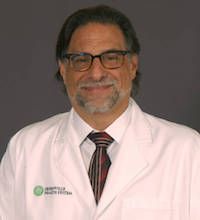Article
Increased HCV Observed in Adults Who Had Pediatric Heart Surgery
Author(s):
A higher prevalence of HCV in adults who received surgery for congenital heart disease as children is a "double whammy" when procedures leaves systemic venous congestion affecting hepatic veins, researchers said.

Gary Abrams, MD
An increased prevalence of hepatitis C virus (HCV) infection in adults who received surgery for congenital heart disease as children prompted researchers to join in the call for Baby Boomers to get screened for HCV, particularly when systemic venous congestion after the procedure affects hepatic vasculature.
Gary Abrams, MD, Division of Gastroenterology and Liver Center, Greenville Health Systems, Greenville, SC, and colleagues point out that procedures before 1992 were performed without screening for HCV in blood for transfusions. In addition to this increased risk for HCV exposure, they note that those with single-ventricle palliation are more susceptible to the damage of hepatitis.
"Adults with congenital heart disease, especially those with single-ventricle physiology are at risk of developing liver fibrosis and progressing to cirrhosis as a result of passive hepatic venous congestion, volume overload, and reduced cardiac output," Abrams and colleagues explained.
In an accompanying editorial, Duraisamy Balaguru, MD, Division of Pediatric Cardiology, University of Texas Houston McGovern Medical School, Houston, TX, describes the burden of HCV risk and heightened susceptibility to hepatic damage as a “double whammy.”
"During the course of 20-30 years, such hepatic venous congestion leads to hepatic fibrosis, cirrhosis and hepatocelluar carcinoma," Balaguru said. "There is a similar risk in HCV infection of developing cirrhosis and hepatocellular carcinoma. Actively identifying and treating these at-risk individuals is important."
Abrams and colleagues conducted a retrospective study of 188 adults who had received cardiac surgery before 1992 to correct congenital heart conditions. They screened these patients for HCV through HCV antibody detection, and followed with HCV RNA testing to determine active infection in the 12 subjects who initially screened positive.
Active HCV infection was confirmed in 11 subjects, or a 9.5% overall prevalence in the study cohort. Five of the 11 elected to be treated, and all 5 achieved sustained virologic response (SVR) at 12 weeks after a course of ledipasvir/sofosbuvir (Harvoni).
Abrams and colleagues noted the prevalence of HCV in this group, albeit a small sample, is seven-fold higher than the 1.3% prevalence reported in the general population of their region.
Although strongly advocating that this population be screened, and treated with a direct acting antiviral (DAA) regimen if positive for HCV infection, the researchers offer some caveats for the treatment in patients with cardiac conditions.
Abrams and colleagues note that sofosbuvir is contraindicated if patients are receiving amiodarone because of adverse interaction potentially leading to severe bradycardia and cardiac arrest. In addition, they recommend closely monitoring digoxin levels during ledipasvir/sofosbuvir treatment, as it is a substrate of P-glycoprotein, with which both DAAs interact.
"Targeted screening is a cost-effective method to detect individuals who may be infected with HCV," Balaguru wrote. "All adults with congenital heart disease and who underwent heart surgery before 1992 are at risk of infection with HCV and therefore should be screened."
The study, "Prevalence of HCV Infection in Adults with Congenital Heart Disease and Treatment with Direct Antiviral Agents," was published online in the Southern Medical Journal last month.





